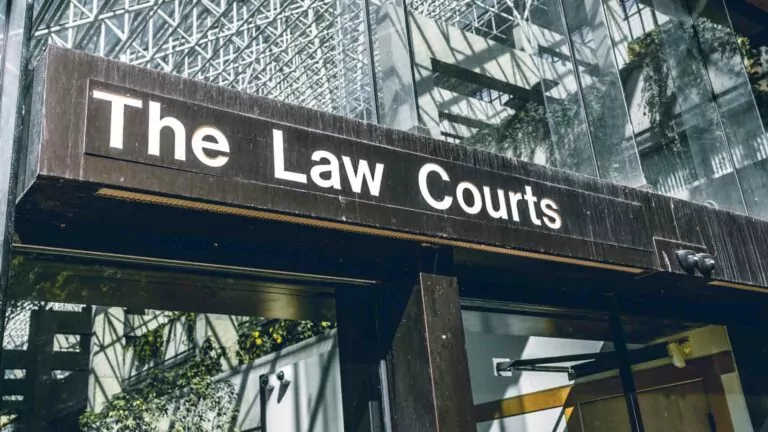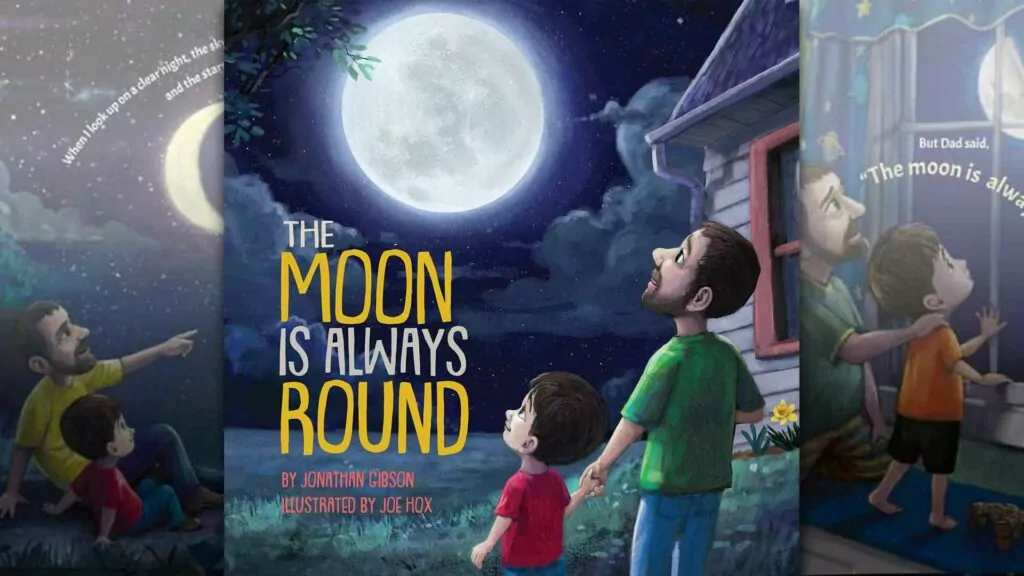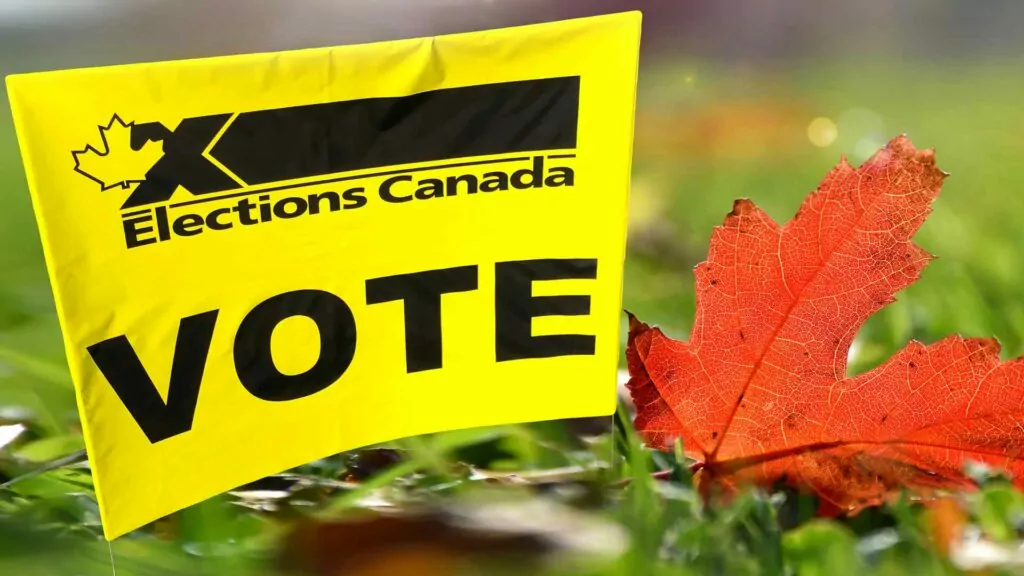When Charter rights appear to be violated, what can a Christian do?
*****
Does being submissive to the ruling authorities mean that a Christian cannot seek their day in court? Would going toe-to-toe with the government in a court of law be a form of insubordination, or show a lack of respect and submission to the civil government?
Or can Christians take the government to court?
Does the Bible give us any guidance on this question?
Some Canadian constitutional context
Court action, in a constitutional democracy, is a legitimate form of government interaction.
Within the modern constitutional state, there are three branches that hold each other in check: the legislature (makers of the law), the executive (those who carry out the law) and the judiciary (those who review the application of the law). This separation within the civil government is described in our constitution as “the separation of powers.” No one man is lawmaker, police officer, judge, jury, and executioner. We divide power, and for good reason: power tends to corrupt fallen man.
All of the civil government in Canada is limited, by law, and is under the law, particularly under the Charter of Rights and Freedoms. Does the Charter govern you as a citizen? No, it doesn’t. It is the highest law in Canada, but it only limits the power of the civil government. So, judges, lawmakers, and police officers, together with the Charter, are a package deal, and together make up “the civil government.”
The Charter of Rights and Freedoms was added to our constitution in 1982. It owes some – though not all – of its language to the Christian legacy of limited state power. (If you want to read more of the legacy, I shamelessly recommend chapters 2 and 4 of A Christian Citizenship Guide, 2nd Edition, which explains it in detail.) The preamble to the Charter states that: “Canada is founded upon principles that recognize the Supremacy of God and the Rule of Law.” This “Supremacy of God” clause is supposed to be a reminder to our lawmakers that they are under the ultimate Lawgiver. (Even if they don’t believe in God, they should at least be able to recognize that they aren’t God!)
But note as well the reference in the Charter’s preamble to the rule of law. That echoes the Belgic Confession, article 36, which in turn echoes Deuteronomy 16 and 17 – we are to be governed not by the whims of kings and tyrants, or bureaucrats for that matter, but by laws and statutes. And everyone is under the law, including the king, the prime minister, the premier, the police, the bylaw officer, and any other government employee. The Charter of Rights and Freedoms is, in some ways, a product of Christianity’s influence on law in the West.
So, what are some things the Charter guarantees? In Canada, according to the Charter, everyone enjoys fundamental freedoms like freedom of religion, conscience, expression, and association, certain democratic rights and mobility rights, certain legal rights and more. These are not absolute rights; the civil government can restrict them in certain, limited circumstances. But, when the civil government imposes on Charter rights like freedom of peaceful assembly, the burden in law is on the civil government – not citizens – to demonstrate that the restrictions are justifiable in a free and democratic society.
But what good does this do us in light of everything we know from Scripture about submission to the governing authorities? So what if we have legal rights – aren’t we called to just submit to the government?
What does 1 Corinthians 6 teach?
Our tendency as Christians is to be suspicious of using the judicial branch due to the misapplication of 1 Corinthians 6, where Paul seems to be telling Christians not to go to the secular courts.
“If any of you has a dispute with another, do you dare to take it before the ungodly for judgment instead of before the Lord’s people? Or do you not know that the Lord’s people will judge the world? And if you are to judge the world, are you not competent to judge trivial cases? Do you not know that we will judge angels? How much more the things of this life! Therefore, if you have disputes about such matters, do you ask for a ruling from those whose way of life is scorned in the church? I say this to shame you. Is it possible that there is nobody among you wise enough to judge a dispute between believers? But instead, one brother takes another to court – and this in front of unbelievers!”
However, this passage applies to two private individuals, particularly, two members of the church, and the passage urges settling the matter before going to an “ungodly court.” In the case we are considering here, the “ungodly court” and the other entity in the legal dispute are of the same nature – both government bodies. What we are doing is much more akin to Paul’s own appeal to Caesar in Acts 25 than to Paul’s urging to avoid court.
Further, the 1 Corinthians 6 passage must be seen in the context of internal church strife: in the church the wisdom of fellow-members or church leaders should prevail over the need to go to court, assuming that these “wise men” dealing with the matter will deal with it in a just, calm, and wise manner. The brothers challenging each other on a judicial matter should be humble and spiritual enough to accept the wise counsel of fellow believers rather than sue each other. A court challenge of the government’s allegedly unjust actions or laws is not within the scope of what Paul is talking about in 1 Corinthians 6.
In Canada, then, a judge is allowed, or even duty bound, to curb the injustice of a higher civil power for the protection of the people under his oversight. In our current context, the Canadian civil government is split into three arms (the “separation of powers”), as explained earlier.
Thus when a Christian challenges government action in court (or defends himself against government action in court) it should not be seen as a lawsuit in the sense that we hear about from time to time – a vengeful opportunity to get rich over against an equal opponent. Rather, we are simply approaching one of the three branches of the government and asking the magistrate to do its God-given duty to call the other branch to account, and to remind it of what exactly its obligations are under the Constitution and what its obligations are with regards to justice and righteousness.
But what about Romans 13?
But what about Romans 13:1-7 and 1 Peter 2:13-17? Don’t these passages demand submission to the governing authorities?
Yes, the general rule of Scripture is that Christians are subject to the governing authorities. But in order to make a proper application of this rule, we have to understand how our civil authorities govern. How citizens interact with governing authorities looks different in a constitutional democracy (where the constitution is supreme even over judges and premiers) than in an ancient absolute monarchy.
In a participatory democracy, it isn’t only the premier who gets to decide what the law requires. In fact, lawyers and judges, and police officers and citizens should all know what their rights and responsibilities are in law. We are all equally under law and ruled by law. This legal reality is a blessing of Christendom. The Magna Carta, which enshrined this concept over 800 years ago in English law, is rooted in Christian culture. Ambiguities, over-reach, constitutional violations, inequal application of the law, all of this needs to be winsomely exposed, and Christians ought not to shy away from this. It is good and right to point these injustices out.
Furthermore, the judiciary is also part of the civil government. When a citizen appeals to a judge to clarify whether or not the actions of the government are constitutional (i.e. legal), then this shows respect for the government and her institutions and uses the law to our advantage.
Paul – who wrote Romans 13 – does this multiple times, when he uses his Roman citizenship status to avoid being flogged (Acts 22:22-29), then again when he demands that the local magistrate personally escort him and Silas out of jail after their rights had been violated (Acts 16:37-40), and again when he appeals to Caesar (Acts 25:10-11).
Daniel’s example
Consider also Daniel’s example. It’s a striking story: King Darius signs a law that says, for 30 days, if men are going to pray, they can only pray to Darius and no other. Daniel 6:10 says, “When Daniel knew that the document had been signed, he went to his house where he had windows in his upper chamber open toward Jerusalem. He got down on his knees three times a day and prayed and gave thanks before his God, as he had done previously.” Daniel acts immediately and decisively. And what is the charge against him? “Daniel pays no attention to you, O king, or the injunction you have signed.” In other words, “Daniel is violating Romans 13, O king! He’s a lawless man, O king. Throw him to the lions!”
But what is the first thing Daniel says to King Darius, after miraculously surviving a night with the lions? “O king, I have committed no crime against you” (Dan. 6:22). (If there were any lawyers in the room, they would have interjected, “Oh yes you did! You broke the clear meaning of the law. You prayed to your God, and your God is not the king, and the law says explicitly and clearly that you can’t do that, and we have witnesses and …!”) But Daniel says, rightly, that by disobeying this silly law, this law which does not align with God’s law, he commits no crime against the king. In other words, obeying the law of God, even if it clearly breaks the law of man, is no crime. More than that, when citizens obey the law of God, they will be no threat to a ruler, Christian or not.
John Calvin on legal action
In Calvin’s Institutes, in the chapter on the Civil Government, Calvin outlines several factors in favor of pursuing litigation: He writes:
“Judicial proceedings are lawful to him who makes right use of them; and the right use… is… without bitterness, urge what he can in his defence, but only with the desire of justly maintaining his right; and…demand what is just and good.”
Later, in the same subsection, Calvin writes, “When we hear that the assistance of the magistrate is a sacred gift from God, we ought the more carefully to beware of polluting it by our fault.” This then, speaks of a specifically Christian approach to litigation: that we “feel as kindly towards [our] opponent… as if the matter in dispute were amicably transacted and arranged.” Later, Calvin also rejects the idea that Paul absolutely or universally prohibits litigation in 1 Cor. 6; rather, an interpretation of that text is to apply to brothers inside the church.
Even so, Calvin speaks very highly of the Christian duty, as private individuals, to respect the civil government. Nevertheless, he does discuss briefly the role of other parts of government, which is very applicable to the question of whether Christians in a constitutional democracy can also challenge government action or laws in court. He writes (quoting from a modern translation):
“there may be magistrates appointed as protectors of the people in order to curb the excessive greed and licentiousness of kings… I would not forbid those who occupy such an office to oppose and withstand, as is their duty, the intemperance and cruelty of kings. Indeed, if they pretended not to see when kings lawlessly torment their wretched people, such pretence in my view should be condemned as perjury, since by it they wickedly betray the people’s liberty of which, as they ought to know, God has made them defenders.”
Asserting legal rights is not (necessarily) insubordination
Asserting Charter rights is not insubordination. As a Canadian citizen, you bear Charter freedoms. Making your case in court, as the law entitles you to do, is a lawful exercise of your office of citizenship. So there may be situations where both the civil government and the Christian citizen must justify their actions, the former in a courthouse and the latter before God.
What should make Christians distinct from their neighbors is not whether we speak up about our freedoms but how. Our tone of respect, our posture of prayer, and our spirit of submission sets us apart. And not only our tone, but also our philosophy of freedom and submission will shape a distinctly Christian approach to speaking up.
Will we advocate for outright defiance, or make our case calmly and reasonably, according to law? I reject the passivism of being totally and silently subservient to the State. This is not biblical (Ex. 1:15-21; Dan. 3:8-23; Dan. 6:5-10; Mark 12:15-17; John 19:11; Acts 4:18-20; Acts 5:17-42; Acts 16:37; 2 Cor. 11:32-33). But I also reject the revolutionary spirit of obstinate civil disobedience.
Two examples
Let’s consider two examples.
Pro-life billboards
First, a couple years ago, one of the Ontario ARPA chapters raised a few thousand dollars to put an ad on London city buses that simply said “Canada has no abortion laws.” About a month or so into the contract, due to mild pushback, the city pulled the ads down, without explanation, without notice or opportunity to reply, and without compensating the local ARPA group for the remaining two months of the contract. We wrote to the city, explaining that what they had done was unconstitutional, and asked them to reinstate the ads. They refused. So, together with ARPA Oxford, we took legal action. And we won! It cost time and money, but the city apologized for what they had done and ran the ads again. A few years later, the City of Hamilton refused to run an ad from another local ARPA chapter, this one simply stating, “We stand for women’s rights. Hers, hers, and hers too” – with the final “her” referring to an ultrasound image of a baby. Again, we are taking the City of Hamilton to court, because their silencing of citizens’ participation in an ongoing political and moral debate is repugnant.
Standing up for freedom through the courts shows respect for our laws, and for political or legal institutions. This is not about freedom of expression to say whatever we want to say, whenever and however we want to say it. It is the freedom to communicate a message that ought to be shared, without censorship.
Dining but not the Lord’s Supper
A second example: during the first summer of Covid, a Reformed church presented a re-opening safety plan to a government bureaucrat working within the local health authority. The document indicated that the church planned to recommence with the sacrament of holy supper. By this time restaurants were open again, and churches were gathering at 30% capacity.
What was the reply of the local government employee? Without any sense of irony, he told the church that sacraments were “off the table.” Could the bureaucrat point to any law, order, or regulation that prohibited the sacrament? No. It was merely his opinion that allowing the church to celebrate the sacrament was too risky.
That is unjust on its face, and a church would do well to challenge such a decision. A church that decided to celebrate communion anyway would not be the one acting illegally. The one acting illegally is that particular bureaucrat.
Conclusion
Like Paul, Christians ought not to shy away from appealing to the courts of law for redress. It is good and right to contend with injustice. May God preserve the rule of law in Canada for the sake of the gospel witness of the church.
André Schutten is ARPA Canada’s Director of Law and Public Policy and General Legal Counsel (ARPACanada.ca).















